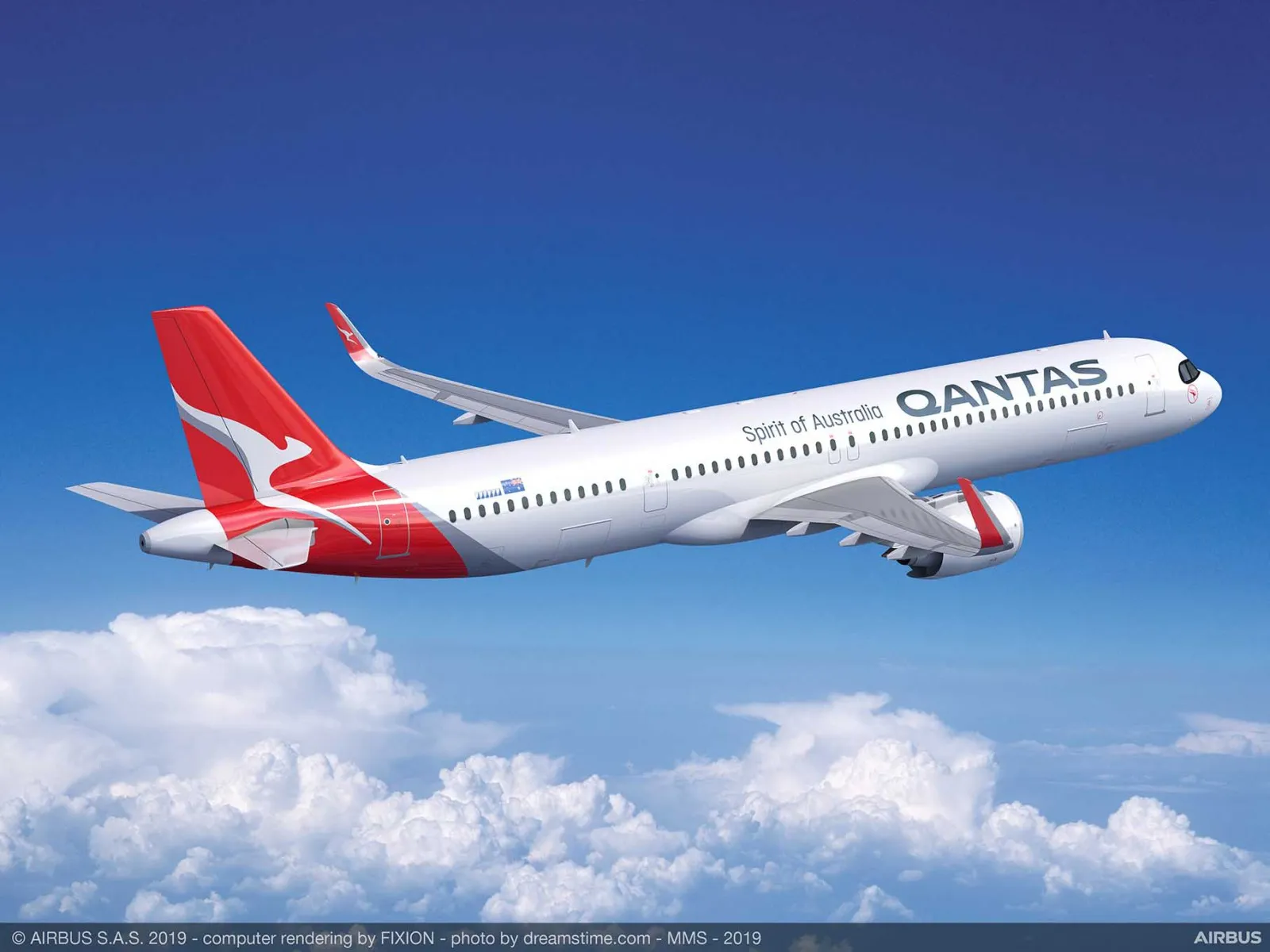
Qantas set to replace regional and short-haul fleet
Oct 04, 2021

Qantas has announced plans to replace its regional and short-haul fleet as part of a broader strategy to enhance efficiency and passenger experience. The airline aims to modernize its aircraft with more fuel-efficient models, which will not only reduce operational costs but also lower carbon emissions. This initiative reflects Qantas's commitment to sustainability and improving service quality across its domestic routes. The new fleet is expected to provide greater reliability and comfort for travelers, while also supporting the airline's recovery and growth in the post-pandemic travel landscape.
Qantas' Ambitious Plan for Regional and Short-Haul Fleet Replacement
Qantas, Australia's flagship airline, is embarking on an extensive project to replace its regional and short-haul fleet. This strategic move is aimed at modernizing its operations, enhancing fuel efficiency, and improving passenger comfort. As travelers become more conscious of environmental impacts, Qantas is responding by investing in newer aircraft that align with sustainability goals. This fleet renewal is a critical step in maintaining the airline's competitive edge in an evolving aviation market.
The Importance of Fleet Modernization
Fleet modernization is essential for any airline looking to maintain operational efficiency and provide high-quality service. Here are some key benefits of Qantas' fleet replacement strategy:
- Fuel Efficiency: Newer aircraft are designed to be significantly more fuel-efficient, reducing operational costs and minimizing carbon emissions.
- Passenger Comfort: Modern aircraft often come equipped with advanced amenities that enhance the travel experience, including improved seating and in-flight entertainment options.
- Operational Reliability: A new fleet can lead to fewer maintenance issues, reducing delays and cancellations, which is crucial in maintaining customer satisfaction.
Current and Future Fleet Overview
Qantas currently operates a mix of aircraft for its regional and short-haul routes, including older models that are less efficient. The planned replacement will introduce state-of-the-art aircraft that promise to transform the flying experience. Below is a comparison of the current fleet versus the anticipated new models:
| Aircraft Type | Current Model | New Model | Fuel Efficiency Improvement |
|---|---|---|---|
| Regional Jets | Embraer E190 | Embraer E2 Series | Up to 17% |
| Short-Haul Aircraft | Boeing 737-800 | Boeing 737 MAX 8 | Up to 14% |
| Turbo-prop Aircraft | Dash 8 Q300 | ATR 72-600 | Up to 10% |
Environmental Impact and Sustainability Goals
As part of Qantas' commitment to sustainability, the replacement of the regional and short-haul fleet is in line with the airline's broader environmental initiatives. The new aircraft are designed to produce lower emissions and utilize sustainable aviation fuels. This initiative is not only beneficial for the planet but also aligns with consumer expectations for corporate responsibility in the travel industry.
Customer Impact and Experience
For passengers, the benefits of Qantas’ new fleet will be felt in several ways:
- Enhanced In-Flight Services: New aircraft will allow for upgraded in-flight services, including better catering options and the latest entertainment systems.
- Quieter Cabins: Modern designs incorporate noise reduction technology, resulting in a more pleasant flying environment.
- Increased Reliability: With fewer maintenance issues, passengers can expect more reliable schedules and improved on-time performance.
Challenges Ahead
While Qantas is making significant strides in fleet replacement, there are challenges ahead. The aviation industry is still recovering from the impacts of the COVID-19 pandemic, and the cost of new aircraft can be substantial. Additionally, supply chain issues could affect the delivery schedule of these new planes. Qantas must navigate these challenges while ensuring that the transition is smooth for both staff and passengers.
Conclusion
The plan to replace Qantas' regional and short-haul fleet represents a pivotal moment for the airline as it seeks to enhance operational efficiency and customer satisfaction. With a focus on sustainability and modern passenger experiences, Qantas is positioning itself for a robust recovery and future growth. As the airline industry evolves, Qantas is taking decisive steps to ensure it remains at the forefront of the market, solidifying its reputation as a leader in aviation excellence.
In summary, the fleet replacement initiative by Qantas is a strategic response to the challenges of modern aviation, aiming to balance profitability with sustainability and enhanced customer experience.
Related Articles

Explore Thailand: The Best Islands to Visit for Paradise, Adventure, and Relaxation

The Ultimate Guide to the Best Islands in Thailand for Your Next Getaway

Do babies need passports? How to get a passport for a newborn

How to get a U.S. passport fast: here’s how to expedite the process

What is Mobile Passport Control: 5 reasons why you should use it

SENTRI vs. Global Entry: A detailed guide

Do you need a passport to go to the Bahamas? Let’s find out

Do you need a passport to go to Mexico? A detailed guide

Do you need a passport to go to Canada? We got the answer

Do You Need a Passport for a Cruise: An Essential Travel Guide

Booster Seat Requirements: All the Rules to Follow in Your Rental Car

What Are the World’s Most Powerful Passports, and How Does Yours Rank?

How to Take a Passport Photo at Home: A Helpful Guide

You've got to have heart! Southwest's new livery

Your opinion: Should water be free on low cost carriers?

Young women bolder than guys as solo travellers
